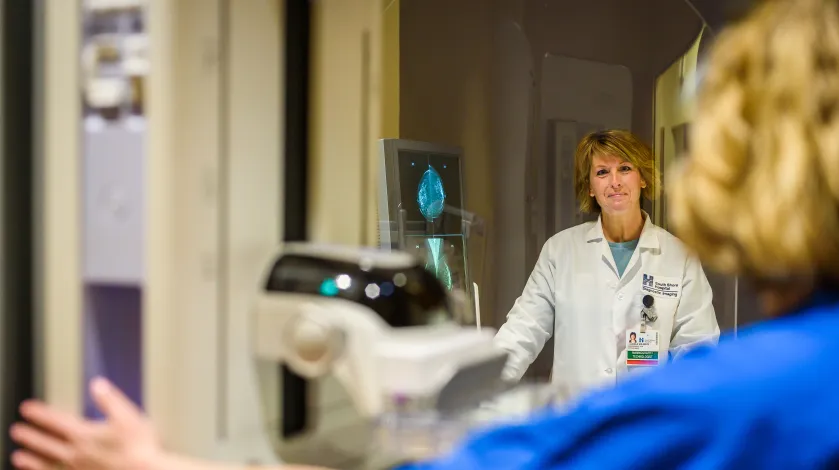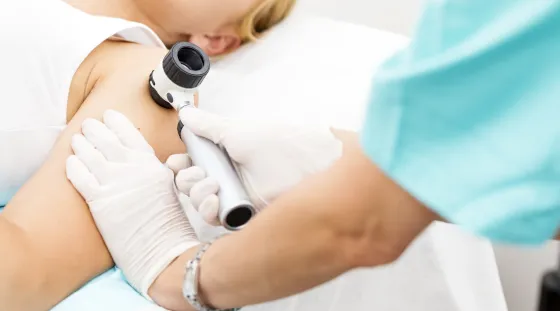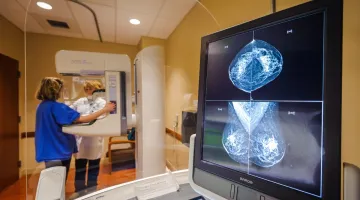Screening & Prevention
Information and Resources to Keep You Well

When it comes to staying healthy and well, regular check-ups and screenings play an essential role.
You may dismiss these appointments as little more than yearly errands, but they are an important part of managing health problems and identifying potential concerns.
Regular health screenings also play a critical role in the early detection of cancer.
In many cases, early detection of cancer can open up additional treatment options and drastically improve patient outcomes.
Screenings can often identify cancer or potentially cancerous cells before symptoms arise, offering a head start on mitigation and treatment.

Don't skip your appointments!
Additionally, if you develop any concerning symptoms, don't wait! Contact your primary care provider as soon as possible.

Know your history
If you have a history of cancer in your family, be sure to discuss it with your primary care provider.
Screening Guidelines
The guidelines below come from a number of sources, including the American Cancer Society, U.S. Centers for Disease Control (CDC), and the U.S. Preventive Services Task Force (USPSTF).
These guidelines are not meant to be a substitute for professional medical advice. We encourage you to seek the advice of your primary care provider or other health care professional if you have questions related to your own unique health needs.
With all screenings, patients should consult with their primary care provider before attempting to schedule an appointment.
Per American Cancer Society recommendations, individuals aged 45-54 with average risk should be screened annually. Individuals aged 55 or older may elect to have mammograms every other year, or may continue with yearly mammograms.
Individuals aged 40-44 should talk to their care provider if they wish to start annual mammograms.
Individuals of all ages are encouraged to be familiar with the normal look and feel of their breasts, and to report any changes or abnormalities to their care provider.

The CDC recommends that individuals begin getting pap tests at age 21. Pap tests may occur every three years if prior results are normal.
For individuals aged 30-65, the CDC recommends either a pap test every three years or an HPV test every five years if prior results are normal.
Talk to your care provider to determine which test is best for you.

The USPSTF recommends that individuals aged 50-75 get a screening for colorectal cancer on a yearly basis. Individuals aged 76 and older should talk to their care provider about the need for continued screenings.
Appropriate screenings will vary depending on your health needs, and can include colonoscopies, virtual colonoscopies, stool tests, and more.
Individuals at higher risk, including those with a family history of colorectal cancer or with certain medical conditions, should talk to their care provider about potentially starting screenings at an earlier age.

The USPSTF recommends that individuals between the ages of 50 and 80 years old who have a 20-pack-year or more smoking history and currently smoke or have quit within the last 15 years.

The American Cancer Society recommends that beginning at age 50, individuals discuss the benefits and drawbacks of prostate care screening with their care provider.
African Americans or individuals who have a family member who had prostate cancer before the age of 65 should have the same conversation with their care provider at the age of 45.

Individuals should report new moles or skin growths, sores that don't heal, or changes to existing moles to their care provider for further examination.

Individuals are encouraged to be familiar with the feel of their testicles, and should report any swelling, lumps, or changes in size or consistency to their care provider.

The ACOG recommends that patients aged 21-30 should get a Pap smear every 3 years, and patients aged 30-65 can have a Pap and HPV test every 5 years, a Pap test every 3 years, or HPV testing alone every 5 years.

Screening News & Information

The Importance of Maintaining Regular Health Screenings
The Importance of Maintaining Regular Health Screenings

Dry January: Eight Health Benefits of Going Alcohol Free
Dry January: Eight Health Benefits of Going Alcohol Free

